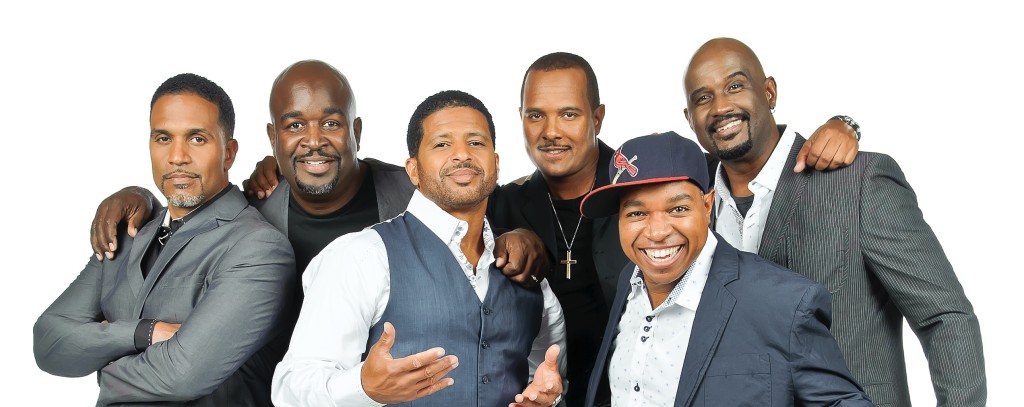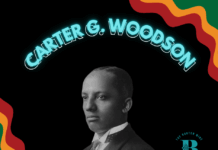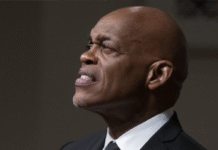
(Photo Credit: Google Images)
Take 6 is single-handedly one of American music’s most famous and celebrated vocal ensembles. The extremely talented, 10-time Grammy award-winning sextet’s current lineup features Claude McKnight III, Mark Kibble, Joel Kibble, David Thomas, Alvin Chea and Khristian Dentley.
The guys, famous for their unison harmonies, percussive arrangements, inspirational messaging and improvised rhythms, have maintained a cohesive fraternal bond since forming on the campus of Huntsville, AL’s Oakwood College in 1980. Take 6’s unmatched sound is a savory concoction of jazz, gospel, bebop, R&B, soul and pop.
Last year, the influential a cappella outfit celebrated its 25th anniversary of releasing its self-titled, 1988 debut LP. “The reality of music is really just artistry. Everybody could bring something beautiful to the table. We’ve tried to make it our practice to make sure when you encounter Take 6, you have a great experience. There’s a strong emotional feeling. We’re gonna bring music, the artistry, a heavy dose of feel good, or what we call ‘God’s love,’” says Mark Kibble, lead singer and group spokesperson.
Take 6 directly refers to the number of times it took the group to settle on its stage name. The unit has undergone a few lineup changes and witnessed many changes in the music industry landscape firsthand. They’ve still been able to reap the benefits of an extraordinary career. Noted as the most Grammy-nominated vocal group in music history to date, Take 6’s incomparable musical ability accumulated millions of record sales, 10 Dove Awards and a Soul Train Award. “What we’ve really tried to do over the years is make the music accessible. We realized we could do a lot of tricks that might go over anybody’s head. There has to be at some point you can listen to us and connect,” says Kibble.
Take 6, who became Gospel Music Hall of Fame inductees this year, recently performed in Atlanta as part of the Ray Charles tribute concert, “Georgia On My Mind.” The exceptional combo shared Cobb Energy Performing Arts Centre’s stage with performers Kirk Whalum, Nnenna Freelon, Clint Holmes, Clark Atlanta University Big Band and the Ebenezer Baptist Church Choir. Fresh from a morning sound check just hours before showtime, Kibble, Take 6’s self-proclaimed “main arranger and musical leader,” remembers the group recording “My Friend” with Charles, whom he affectionately refers to as “Brother Ray,” for their 1990 sophomore album, So Much 2 Say.
Backstage relaxing in a vacant dressing room, Kibble shares fond memories of shadowing and sitting beside “Brother Ray” in the studio. He’s still gets mesmerized from mentioning being in the booth and the control room with the musical icon. “We originally wanted him to do ‘Amazing Grace’ with us. He listened and literally said, ‘I can’t sing that song. That’s done,’” recalls Kibble.
Take 6 immediately came up a plan to pen the original number especially for “Brother Ray.” “He loved it. He put his stamp on it. It was amazing. I was so glad to connect with him,” adds Kibble. The group went onto perform for four U.S. Presidents and continues to entertain loyal fans across the globe. Take 6’s road to success, Kibble adds, was never an easy path to travel on.
“Over the past 25 years, it’s very obvious the entire industry has changed dramatically, so everybody’s learning the new ropes. From ‘87 to ‘88, we couldn’t have been more green (laughs). We were like deer caught in headlines back then. We had to learn the old ropes because we didn’t know them,” he says.
Over the years, Take 6 has performed and collaborated with Quincy Jones, Stevie Wonder, Queen Latifah, CeCe Winans, Whitney Houston, k.d. lang, Marcus Miller, Patti Austin, Lalah Hathaway and Brian McKnight (also Claude’s brother) among others. When it came to the fellows interacting with major label personnel or concert promoters especially, the collective has always kept in mind that their various interactions with diverse people are key to their longevity.
“One of the most important things to us is to form great relationships. The experience they have with us is what they remember aside from the music we do. If they were comfortable and had a good time, chances are they will call us back,” says Kibble.
For the digital music era, Take 6 remains one of few performing acts featuring men of color that primarily use distinctive vocals as instrumentation. Picking back up on the idea that black singing groups have virtually evaporated from mainstream music, Kibble acknowledges this void and offers his perspective on fickle audiences, corporate gratification and digital music platforms’ influence of mass culture.
“I really do wish people respected music a little bit more than they do. It’s very easy to get caught up and do flavor of the week. It’s even harder to know what flavor of the week is and to keep up,” says Kibble. Despite this shift and ongoing changes in the industry, Take 6 remains consistent with keeping traditional jazz music at the core of its sound. The group’s ties to jazz and gospel align their spirituality with their knack for improvisation.
“Take 6 is all about love. It’s the only music that allows you to be free with what you’re singing. It comes from the heart and soul. You don’t want to arrange so much. Where the rubber meets the road is in the song itself. You can make the room beautiful, but don’t lose the song in the process,” says Kibble.
This post was written by Christopher A. Daniel, pop cultural critic and music editor for The Burton Wire. He is also a contributing writer for Urban Lux Magazine and Blues & Soul Magazine. Follow Christopher @Journalistorian on Twitter.
Like The Burton Wire on Facebook. Follow us on Twitter @TheBurtonWire.







